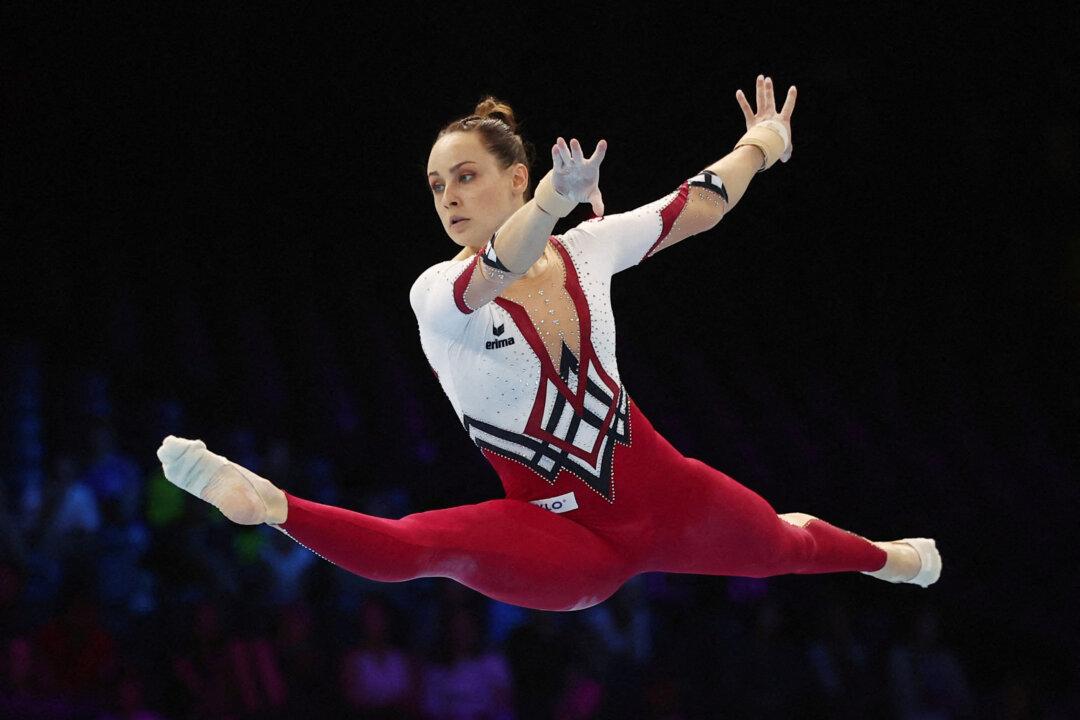PARIS—Some of Germany’s female Olympic gymnasts at the Paris Games opted for full-body suits in training on Thursday, a fashion choice that has had profound repercussions for young competitors and inspired women to wear what makes them feel at ease.
At their podium training session at the Bercy Arena in Paris, two German gymnasts wore black unitards, which are combined leotards and leggings extending to the ankles.





